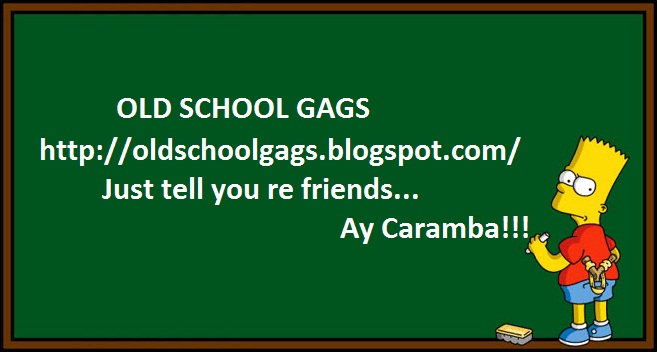I remember picking the book up out of curiosity, and then putting it down--several hours and some 300 pages later. Harry Potter and the Sorcerer's Stone was perfect.
That's not to say that you have to be in pain to enjoy the adventures of Harry Potter. There are lots of good reasons why you should treat yourself to what are sure to become literary classics:
OLD SCHOOL GAGS


Harry Potter - The book you should read with you're child
Posted by Bizzare Store at 7:19 AM
Family Guy Season Premiere 2008
After the scene when Cleveland yells 'Boom goes the dynamite' (a reference to the infamous YouTube video) after having an orgasm with a girl in a public washroom, I laughed out loud for the 5th time in the episode. Then I turned to the clock and noticed that it was only 9:15pm. I was happy that there was only 15 minutes left in the episode and realized that Family Guy is back!
Last season's strike shortened episodes were the worst in Family Guy history. A sub-par Family Guy episode is always better than most shows on network television, but I was very disappointed with their showing last year. It seems like creator Seth MacFarlane, fresh off his $100 million contract to show-run Family Guy, American Dad and the spin-off The Cleveland Show (to air in January 2009), is back as this premiere episode grabbed me. Now I'm looking forward to watch what he's got going next.
Whereas the last 15 episodes of Family Guy really had no plot at all, the premiere episode lead with a plot. Yes, Family Guy is all about randomness and strange events, but if there is no actually plot, we the audience will get bored even if the jokes are funny. Storytelling using plot is something we've been used to ever since our parents or guardians read us nursery rhymes as babies. We need to follow a plot, no matter how Family Guy insane it is, in order for us to be interested.
This episode follows Brian (with Stewie not far behind) on a journey of finding love. A common story in the Family Guy series. This time he abstains from sex with his new girlfriend in order to gain respect from her. Of course this backfires when she is horny and ends up with Cleveland. Cleveland is a funny character and it should be interesting if he can pull off leading an entire series when he's spinned-off into his new show. Brian tries to separate them with the help of Stewie, and tries to get Cleveland's ex to come back and take Cleveland away so Brian can have the girl.
Of course all of this is insane but Brian after all is a dog. And that's what this show is all about. Common storylines and pop-culture references in the crazy world of a talking Dog and evil genius talking Bab living with an even crazier family. A colleague of mine suggested that universities should create a course about Family Guy episodes. It should be called Family Guy and the Pop Culture Influence of our World. He swears that it's needed in post-secondary schools because we need to understand how in our society why the entertainment industry is so prominent. And how Family Guy episodes really put the wink in the wink-wink of our world. So here's to a solid first episode. Hopefully there are 20 more to come.
The Simpsons Movie – first review
Homer Simpson, the oafish paterfamilias of America’s favourite dysfunctional family, emerges from his big-screen debut a bona fide Hollywood action hero.

At the start of The Simpsons Movie Homer’s dreams of glory are limited to helping his new pet pig to walk upside down on the ceiling while singing “Spiderpig, Spiderpig” to the Spider-Man theme song
But when the adopted swine gets him into bigger trouble than even this celebrated screw-up has ever experienced before, he falls under the influence of a chesty Native American woman he calls “Boob Lady” and undergoes an uncharacteristic epiphany that galvanizes him into action for the good of his by-now estranged clan.
By the time the witty final credits roll, Homer outshines even Arnold Schwarzenegger, who has been elected president and ordered great harm done to Homer’s home town.
The Hollywood action theme helps the hit cartoon series, after 18 seasons on television, to land its death-defying leap to the big screen with panache. The result is a postmodern parable about an environmental scare that is at the same time hilarious and horrifyingly poignant. But thanks to an unexpected glimpse of Bart’s genitalia, this is a postmodern parable with a “pickle shot”.
The film boasts the same sly cultural references and flashes of brilliance that have earned the television series a following that ranges from tots to comparative literature PhDs. Despite its clownishness and childish graphics, it still offers searing insights into the pathetic human condition.
When the residents of Springfield learn that they are confronting catastrophe, for instance, the panicked occupants of the bar and the next-door church pour out into the street and change places — the drinkers taking solace in religion and the religious finding comfort in drink.
But the movie will be equally satisfying to those who just find it funny that Homer wants to kiss his pet pig — or laugh at Marge pondering the (literally) weighty issue of the pig’s “leavings”, or excrement.
Early on The Simpsons team shows their nerve by making Homer wonder out loud why anyone would pay to buy a cinema ticket to watch what they could see on TV free — the underlying question of the whole big-screen adaptation. In Homer’s view, anyone who pays for cinema tickets to watch a TV show is a sucker. Jabbing his finger at the audience, he declares: “Particularly you!”
What you get for your money is the Simpsons on an epic scale. The familiar, if geographically indeterminate, territory of Springfield is suddenly transformed into a cross between The Truman Show and Escape from New York, with a Big Brother government conspiring to keep all its unruly residents in line until it can be bombed into a “new Grand Canyon” tourist attraction.
The middle section, set in Alaska, lags because of the absence of the familiar props of the Simpsons’ home town. I found myself longing for Homer and his tribe to return to wreak more havoc on their neighbours, particularly the long-suffering Flanders.
But the film ends with a tense second-by-second countdown that fully exploits the bathos of that schlump Homer becoming an action star able save the world, or at least his little part of it. The conventions of the “disaster flick” allow The Simpsons’ left-leaning creator, Matt Groening, to indulge his politics with wry warnings of environmental doom without boring us out of our mustard-yellow skin.
Lisa, Homer and Marge’s swotty daughter, has become an ardent environmentalist who makes an Al Gore-style presentation entitled “An Irritating Truth” to the local populace.
In the same spirit, this film could have been subtitled: “An Inconvenient Cartoon”.





























































0 comments:
Post a Comment